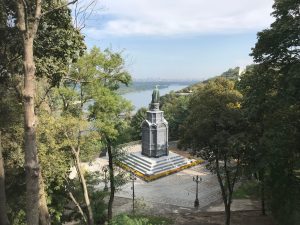
This blog is a part of our Ukraine series – written and researched by Michael Howard.
The day Ukrainian President Viktor Yanukovych fled to Russia in 2014 the entire Ukrainian treasury had a few thousand dollars. During 4 years in power, he and his cronies allegedly looted billions from the country (some say as much as USD 40 billion). Ukraine would benefit greatly from this money as it tries to recover from economic collapse, war and annexation of its territory. The obstacles and government failures associated with this recovery have been well documented (see previous CIFAR blog). Recently, there have been some positive developments but the overriding sentiment amongst campaigners is one of continuing frustration.
Step forward – creation of ARMA
At the start of 2017, the Ukrainian parliament (the Rada) approved the creation of the Asset Recovery and Management Agency (ARMA), Ukraine’s national agency for finding, tracing and managing assets derived from corruption and other crimes. The Rada, aka Europe’s largest business club, is not known for its avid support of anti-corruption initiatives and sure enough some MPs, afraid their own assets are under threat, have now declared the agency’s work unconstitutional. ARMA’s successes to date have nevertheless been modest, mostly limited to the recovery of a few cars, private jets and property.
A successful recovery of sorts
More substantial was the recovery last year by the government of USD 1.5 billion stolen by the previous regime in the form of dollar-denominated bonds issued to eight Cyprus companies. The corrupt scheme also involved the use of companies in other jurisdictions, including the Caymans, the British Virgin Islands and the UK. However, this return, the largest so far, has become a source of controversy in itself and highlights the difficulties faced by the Ukrainian government and civil society in their asset recovery attempts.
Hindered by deficiencies in Ukrainian law, the government struck a deal with an accessory to the theft to obtain a court judgement to return the USD 1.5 billion. The court ruling was conducted behind closed doors. Anti-corruption campaigners believe the legal process is flawed and provides ground for legal challenge. The government has rejected these claims but, according to media, “the legal battle is already underway”.
Furthermore, the disclosure of the secret court ruling in January by Aljazeera revealed that Investment Capital Ukraine (ICU) had helped broker the deals to siphon away the money. ICU was at the time headed by Valery Gontaryeva, the current Governor of Ukraine’s National Bank, and had also advised the current president Poroshenko. The government has also been accused by anti-corruption campaigners of using some of the recovered funds to support Poroshenko’s re-election fund and prop up the agriculture businesses of oligarchs Yury Kosiuk and Oleg Bakhmatiuk.
No end in sight
When Yaroslav Yurchyshyn, Head of Transparency International Ukraine, spoke about the Yanukovych asset recovery during an anti-corruption training event in Lviv in September 2018 his feelings of frustration were evident. He contrasted Ukraine’s failure to make a landmark case out of the Yanukovych asset recovery with successful corruption prosecutions in Brazil and Kenya. In Brazil, investigations into high-level corruption, the so-called Car Wash scandal, have led to the impeachment of former president Dilma Rousseff and dozens of convictions, including a 12-year prison sentence for another former president.
By comparison, not a single Ukrainian politician or businessman implicated in the Yanukovych era corruption frenzy has to date been brought to justice. In August this year, Paul Manafort, a political consultant and former chairman of Donald Trump’s presidential campaign, who helped Yanukovych win the 2010 election, was convicted in the US on charges of tax evasion and fraud. Manafort received payments worth USD 60 million from Yanukovych supporters allegedly stolen from state funds. Ukraine’s General Prosecutor subsequently announced the initiation of probes into Ukrainian officials and ministers incriminated in the Manafort trial. Voice of America reports that activists, while welcoming the decision, fear that, as has happened numerous times in the past, “political obstacles will be thrown up to block investigations”.
Time is ticking. Sanctions and asset freezes imposed on Yanukovych and his associates will not remain in place forever, indeed some have already been removed. Four years have passed since the Revolution of Dignity yet the possibility of achieving one of its main goals – punishing the crimes of the Yanukovych regime – seems as remote as ever.
